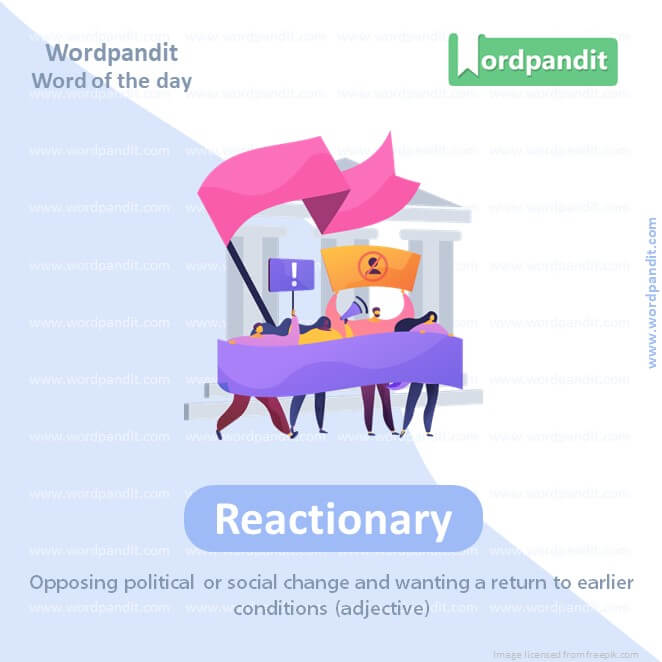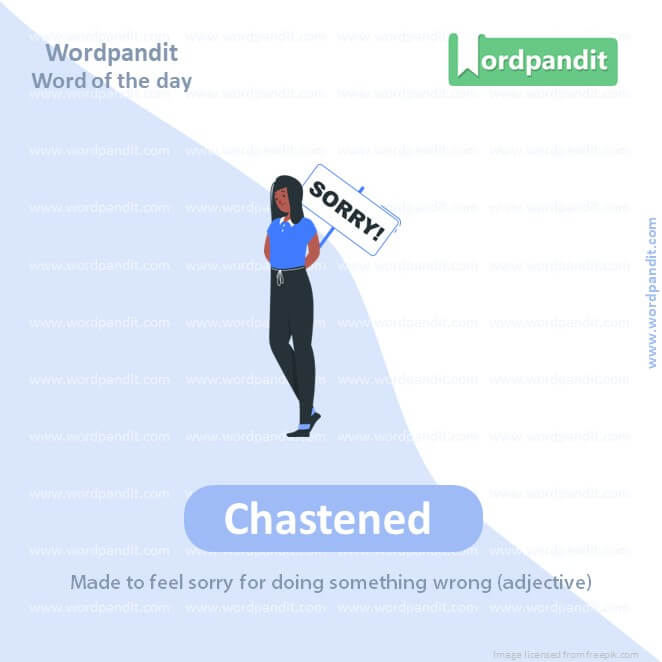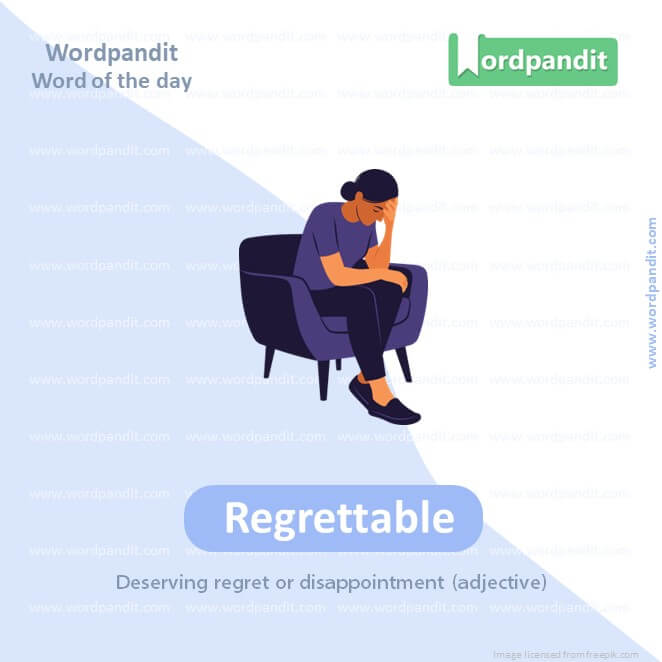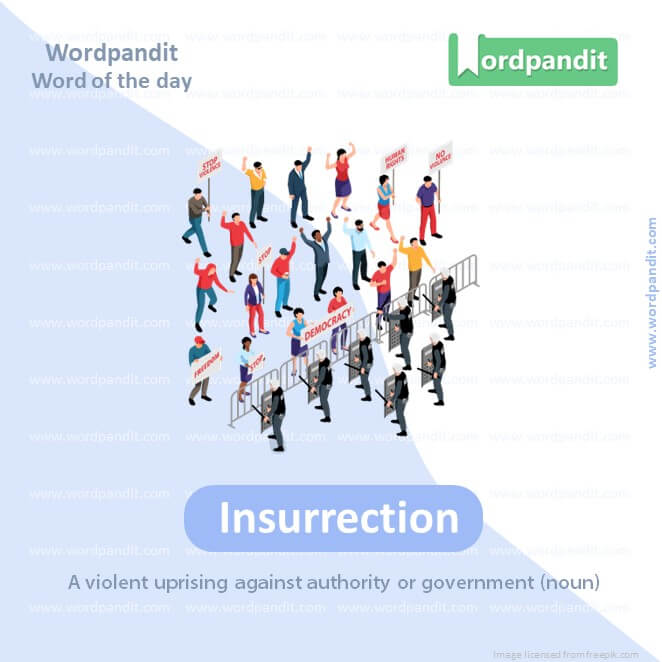Daily Vocabulary Words: List of Daily Used Words in Leading International Newspapers
Hi there. Welcome to this special section @ Wordpandit.
Our endeavour here is very simple: to highlight important daily vocabulary words, which you would come across in leading newspapers in the country. We have included the following newspapers in our selection:
• The New York Times
• The Washington Post
• Scientific American
• BBC
• The Guardian
• Psychology Today
• Wall Street Journal
• The Economist
We are putting in extensive work for developing your vocabulary. All you have got to do is be regular with this section and check out this post on a daily basis. This is your repository of words that are commonly used and essentially, we are posting a list of daily used words. Hence, this has significant practical application as it teaches you words that are used commonly in leading publications mentioned above.
Visit the website daily to learn words from leading international newspapers.

WORD-1: Reactionary
CONTEXT: Countless mobilized reactionary groups have more media attention than they have organic audience.
SOURCE: New York Times
EXPLANATORY PARAGRAPH: Imagine you have a friend who doesn’t like new things and always wants things to stay the same, like playing the same old games and not trying new ones. That’s what ‘reactionary’ means. It’s like someone who doesn’t like changes and wants to go back to how things were before.
MEANING: Opposing political or social change and wanting a return to earlier conditions (adjective).
PRONUNCIATION: ree-ak-shuh-nair-ee
SYNONYMS: Conservative, traditionalist, rightist, orthodox, conventional.
USAGE EXAMPLES:
1. The government’s reactionary policies were criticized by the youth.
2. He had a reactionary attitude towards technological advancements.
3. The new reforms faced strong opposition from reactionary groups.
4. Her views were considered too reactionary for the modern era.
WORD-2: Maneuvering
CONTEXT: The far bigger challenge for the justices is ensuring that Trump does not manage, yet again, to game the system by maneuvering to delay trial into summer or beyond.
SOURCE: Washington Post
EXPLANATORY PARAGRAPH: Think about when you’re trying to get through a crowded room without bumping into anyone. You move carefully, turning and stepping around people. That’s like maneuvering. It’s moving or planning in a clever way.
MEANING: Skillful or careful movements or actions (noun); the act of directing with skill (verb).
PRONUNCIATION: muh-noo-ver-ing
SYNONYMS: Navigating, steering, manipulating, strategizing, finessing.
USAGE EXAMPLES:
1. The pilot’s expert maneuvering helped avoid an accident.
2. She was good at maneuvering through complicated situations.
3. His political maneuvering secured him a higher position.
4. Maneuvering the boat through the narrow canal required skill.
WORD-3: Nefarious
CONTEXT: The speed, scale and amplification of the power to capture an aspect of routine workaday life and cast it as nefarious activity are staggering.
SOURCE: New York Times
EXPLANATORY PARAGRAPH: If someone is doing something really bad or wicked, like a villain in a story, you can call that ‘nefarious’. It’s when someone is up to no good and being really mean or evil.
MEANING: Extremely wicked or villainous (adjective).
PRONUNCIATION: nuh-fair-ee-uhs
SYNONYMS: Wicked, evil, sinful, vile, corrupt.
USAGE EXAMPLES:
1. The villain in the movie had a nefarious plan.
2. She was known for her nefarious activities.
3. The detective uncovered the nefarious scheme.
4. His nefarious reputation made everyone wary of him.

WORD-4: Chastened
CONTEXT: An appeals court slapped her down, but Cannon doesn’t seem chastened.
SOURCE: Washington Post
EXPLANATORY PARAGRAPH: Imagine you did something wrong and someone told you off, making you feel sorry and wanting to be better. That’s being ‘chastened’. It’s like learning a lesson from a mistake you made.
MEANING: Made to feel sorry for doing something wrong (adjective).
PRONUNCIATION: chay-suhnd
SYNONYMS: Humbled, disciplined, corrected, reformed, penitent.
USAGE EXAMPLES:
1. The chastened child apologized for his behavior.
2. She felt chastened after the stern lecture.
3. His experience had chastened him, making him wiser.
4. The team’s loss served as a chastening experience.

WORD-5: Dichotomous
CONTEXT: All of this dichotomous thinking forgets one thing: Academics are not born; they’re made. More broadly, administrators of Harvard, or anywhere else for that matter, are not born; they are made.
SOURCE: New York Times
EXPLANATORY PARAGRAPH: Think of when you sort things into two very different groups, like toys and clothes. ‘Dichotomous’ means something is split into two completely different parts or ideas.
MEANING: Divided or dividing into two sharply contrasting parts or opinions (adjective).
PRONUNCIATION: dai-kuh-tuh-muhs
SYNONYMS: Contrasting, opposing, divergent, dual, binary.
USAGE EXAMPLES:
1. The dichotomous nature of the debate made it very heated.
2. His views were dichotomous, offering a clear choice.
3. The study presented a dichotomous outcome.
4. Her feelings were dichotomous, torn between two decisions.

WORD-6: Regrettable
CONTEXT: On that score, the justices’ decision not to take up the immunity matter immediately, as special counsel Smith asked, was regrettable but not necessarily disastrous.
SOURCE: Washington Post
EXPLANATORY PARAGRAPH: When something happens that you wish didn’t, like if you break a favorite toy, that’s ‘regrettable’. It means something is sad or unfortunate, and you wish it could be different.
MEANING: Deserving regret or disappointment (adjective).
PRONUNCIATION: ruh-gret-uh-buhl
SYNONYMS: Unfortunate, lamentable, sad, disappointing, undesirable.
USAGE EXAMPLES:
1. The accident was a regrettable incident.
2. It’s regrettable that we missed the event.
3. Her decision to leave was regrettable.
4. The misunderstanding was a regrettable mistake.
WORD-7: Supposedly
CONTEXT: The moral case for “diversity” must contend with the supposedly rational case for “merit” or achievement.
SOURCE: New York Times
EXPLANATORY PARAGRAPH: When you hear something that people say is true, but you’re not sure if it really is, that’s ‘supposedly’. Like if someone says a superhero lives in your town, but you haven’t seen them.
MEANING: According to what is generally thought or believed but not known for certain (adverb).
PRONUNCIATION: suh-pohz-id-lee
SYNONYMS: Allegedly, apparently, purportedly, seemingly, ostensibly.
USAGE EXAMPLES:
1. Supposedly, he’s the best player in the league.
2. She’s supposedly moving to another country.
3. The treasure is supposedly hidden in the cave.
4. Supposedly, the event will start at eight.

WORD-8: Insurrection
CONTEXT: The second monumental Trump case involves Section 3 of the 14th Amendment and the issue of whether Trump can be removed from the ballot for having engaged in insurrection.
SOURCE: Washington Post
EXPLANATORY PARAGRAPH: Imagine a big group of people who are really unhappy with the rules and decide to fight against the leaders to change them. That’s an ‘insurrection’. It’s like a big, angry protest where people try to take power.
MEANING: A violent uprising against authority or government (noun).
PRONUNCIATION: in-suh-rek-shuhn
SYNONYMS: Rebellion, revolt, uprising, mutiny, revolution.
USAGE EXAMPLES:
1. The insurrection was quelled by the government forces.
2. They were charged for their role in the insurrection.
3. The novel described a fictional insurrection against the regime.
4. Historical records speak of an insurrection in the city.
WORD-9: Dismayed
CONTEXT: In the 1920s, Harvard (along with Yale and Princeton) was dismayed that so many Jewish students were passing its carefully designed admissions tests.
SOURCE: New York Times
EXPLANATORY PARAGRAPH: Think about when you feel really upset or worried because something bad happened or didn’t go the way you wanted. That’s feeling ‘dismayed’. It’s like being really disappointed and a little scared.
MEANING: Caused to feel upset and disappointed (adjective).
PRONUNCIATION: dis-mayd
SYNONYMS: Distressed, disheartened, discouraged, alarmed, appalled.
USAGE EXAMPLES:
1. She was dismayed by the poor test results.
2. The team was dismayed at losing the match.
3. His rude behavior left her feeling dismayed.
4. The news of the accident left everyone dismayed.
WORD-10: Unimaginable
CONTEXT: But it is unimaginable that the court would give state courts or other state officials the authority to do so.
SOURCE: Washington Post
EXPLANATORY PARAGRAPH: Think of something so amazing or so strange that you can’t even think it up in your head, like a dragon that breathes ice instead of fire. That’s ‘unimaginable’. It’s something so unusual or fantastic, you can’t picture it.
MEANING: Not capable of being imagined or thought of (adjective).
PRONUNCIATION: un-i-maj-uh-nuh-buhl
SYNONYMS: Inconceivable, unbelievable, incredible, unthinkable, unimaginable.
USAGE EXAMPLES:
1. The beauty of the place was unimaginable.
2. They achieved unimaginable success.
3. The scale of the disaster was unimaginable.
4. Her creativity was of unimaginable depth.
Vocabulary Meaning
In the ocean of language learning, ‘vocabulary meaning’ is akin to the colorful coral reefs that add depth and vibrancy to communication. Yet, infusing our interactions with this vibrancy is often a challenge for many language learners. The crux lies in effectively deciphering and employing the ‘vocabulary meaning’.
Learning ‘vocabulary meaning’ isn’t about merely gluing words to their definitions. It’s about forming a deep understanding and connection with these words that transcends rote learning. To gain a comprehensive grasp of ‘vocabulary meaning’, one needs to navigate beyond textbook definitions and commit to exploiting diversified resources such as novels, films, music, articles, and digital content. This allows one to encounter vocabulary in a variety of contexts and actual usage, giving deeper insight into their meaning.
However, understanding ‘vocabulary meaning’ involves another essential aspect—memory retention. Techniques such as spaced repetition and the Leitner System offer effective methodologies to maintain and consolidate the ‘vocabulary meaning’. Additionally, leveraging mnemonic strategies can help etch words into your memory by linking them with unique stories or imagery that are personal and easily recallable.
Another way of mastering ‘vocabulary meaning’ is by immersing yourself in the language. Engage in regular conversations with native speakers if possible or utilize language exchange platforms to practice your skills. This not only bolsters your understanding of how the vocabulary is used but also helps articulate the ‘vocabulary meaning’ in the societal and cultural contexts.
In conclusion, gaining a robust grasp of ‘vocabulary meaning’ is a journey rather than an end goal. It requires dedication, perseverance and most importantly, a multi-faceted approach that includes diversified resources, effective memory strategies, and real-life application. With these strategies in place, the depths of ‘vocabulary meaning’ are no longer daunting but become an enchanting exploration of language.







